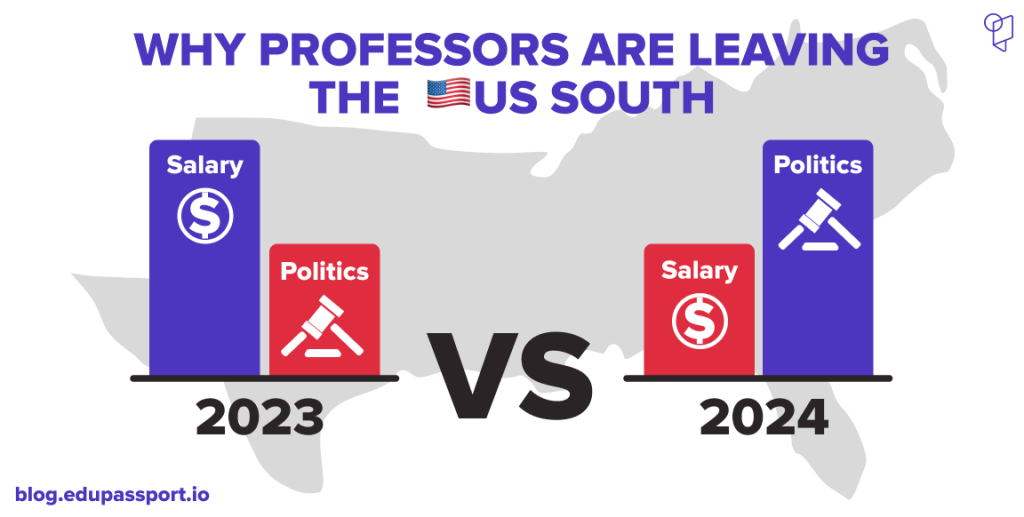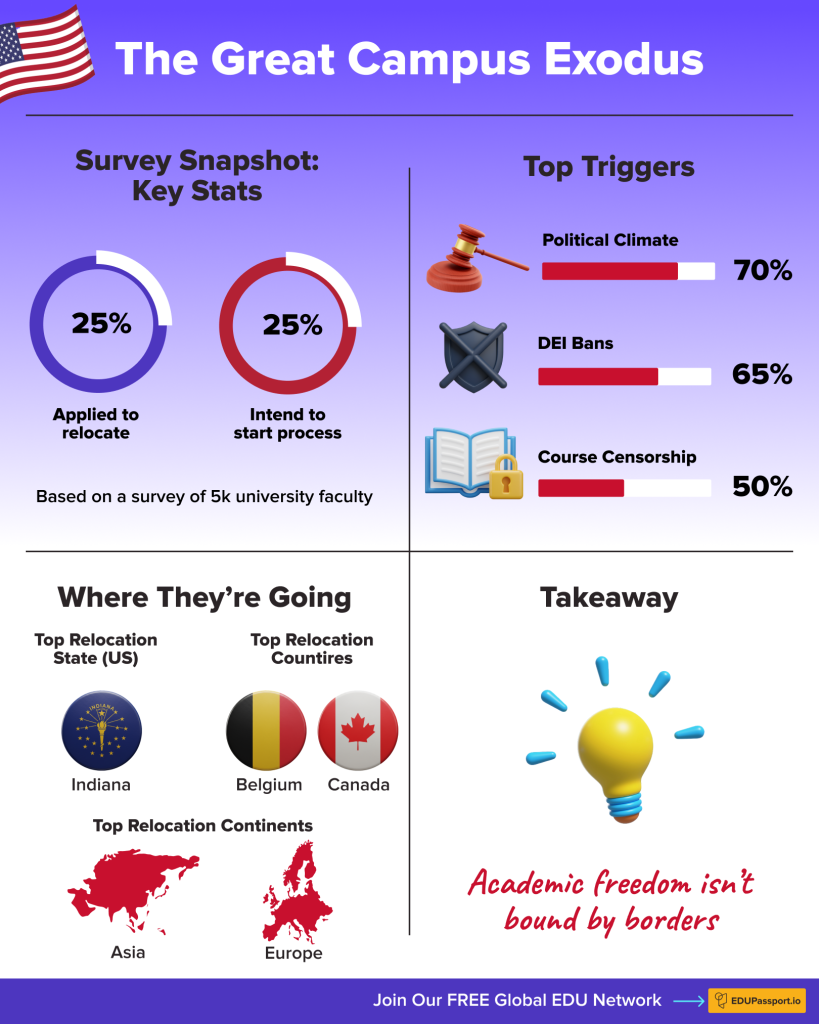The classroom brain drain is real. A new survey shows that one in four professors across the US South are actively job-hunting outside their state, and this time, salary isn’t the main reason. Politics is.
A Quarter on the Move
The American Association of University Professors surveyed roughly 4,000 faculty members across Texas, Florida, Georgia, Tennessee, and Kentucky. About 25% have already applied for jobs elsewhere, while another quarter plan to start searching soon. Last year, pay was the biggest motivator. This year, “broad political climate” took the top spot.

When Teaching Feels Like Tiptoeing
Heather Houser, who taught American literature and environmental humanities at the University of Texas at Austin for 14 years, said the growing government oversight made staying impossible. She left for a new post at the University of Antwerp in Belgium.
“I worried that the ability to teach things I cared about—like environmental or social justice—would become increasingly hard or even discouraged,” Houser shared.
Her concerns aren’t isolated. Texas governor Greg Abbott’s SB17 law bans diversity, equity, and inclusion (DEI) offices and initiatives in higher education. At UT Austin, that meant office closures, staff firings, and course rewrites to remove references to race, gender, and queer identity.
The Human Cost of Leaving
Leaving isn’t a glamorous escape. Houser is learning Dutch, navigating a new academic system, and took a pay cut. Wendy Watson, formerly a pre-law adviser at the University of North Texas, moved to Ball State University in Indiana, accepting a 25% salary drop and a lower academic rank to keep teaching courses on constitutional law and critical legal studies.
“If things feel bad for you now, they are likely to get much worse,” Watson warns colleagues still in Texas.
Ripple Effects on Campuses
Faculty departures create more than empty offices. Students lose mentors, courses shrink, and the diversity of thought on campus narrows. With DEI offices closing and curricula rewritten, academic freedom feels fragile. Some professors compare the process to “putting your own oxygen mask on first” before helping students.
Global Talent Shuffle
While southern campuses face restrictions, international universities stand to gain. Institutions in Europe, Canada, and Asia are recruiting U.S. professors seeking academic freedom, even if it means language barriers or smaller paychecks.
What This Means for Education
The trend isn’t just a southern story. It’s a warning for higher education everywhere: when politics dictate what can be taught, professors vote with their feet.
Thinking about teaching abroad? 🌍 EDU Passport connects educators to opportunities without borders. Explore global roles and keep your academic freedom intact.






















